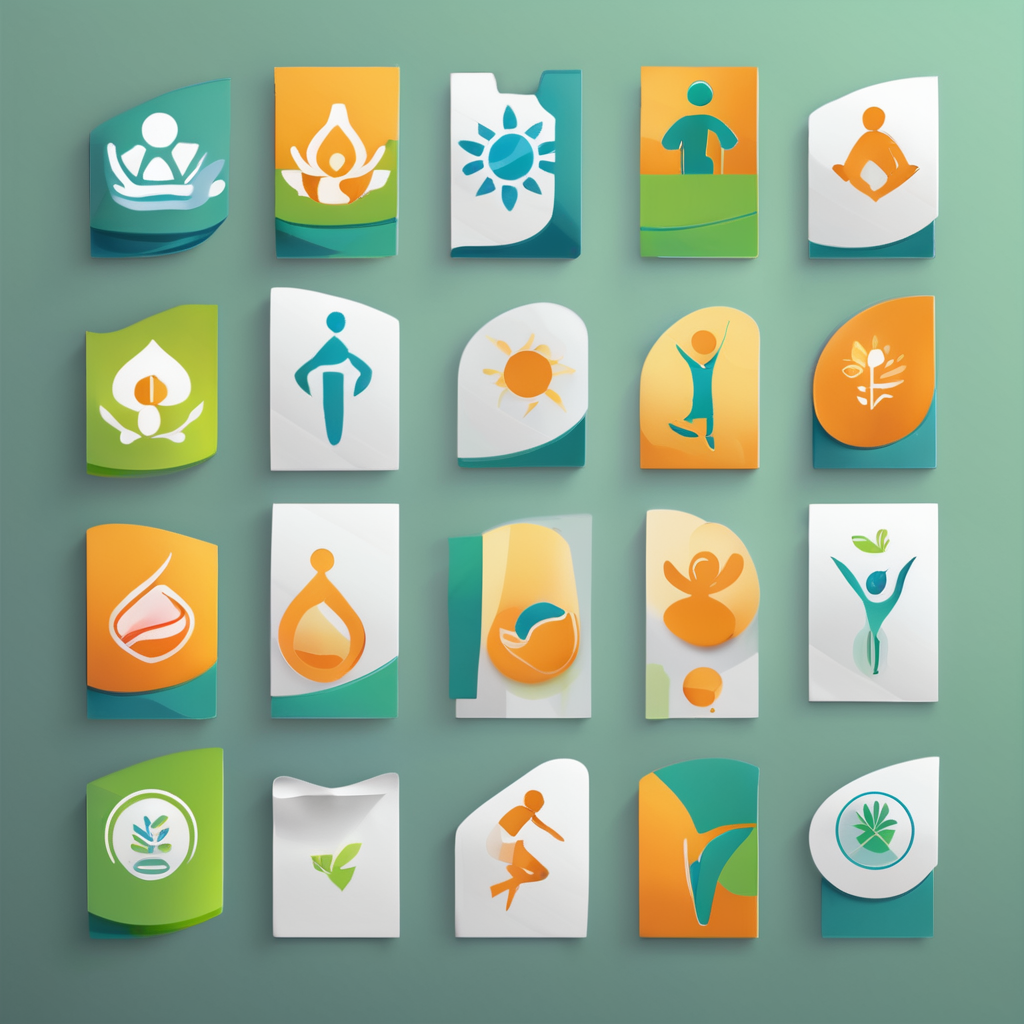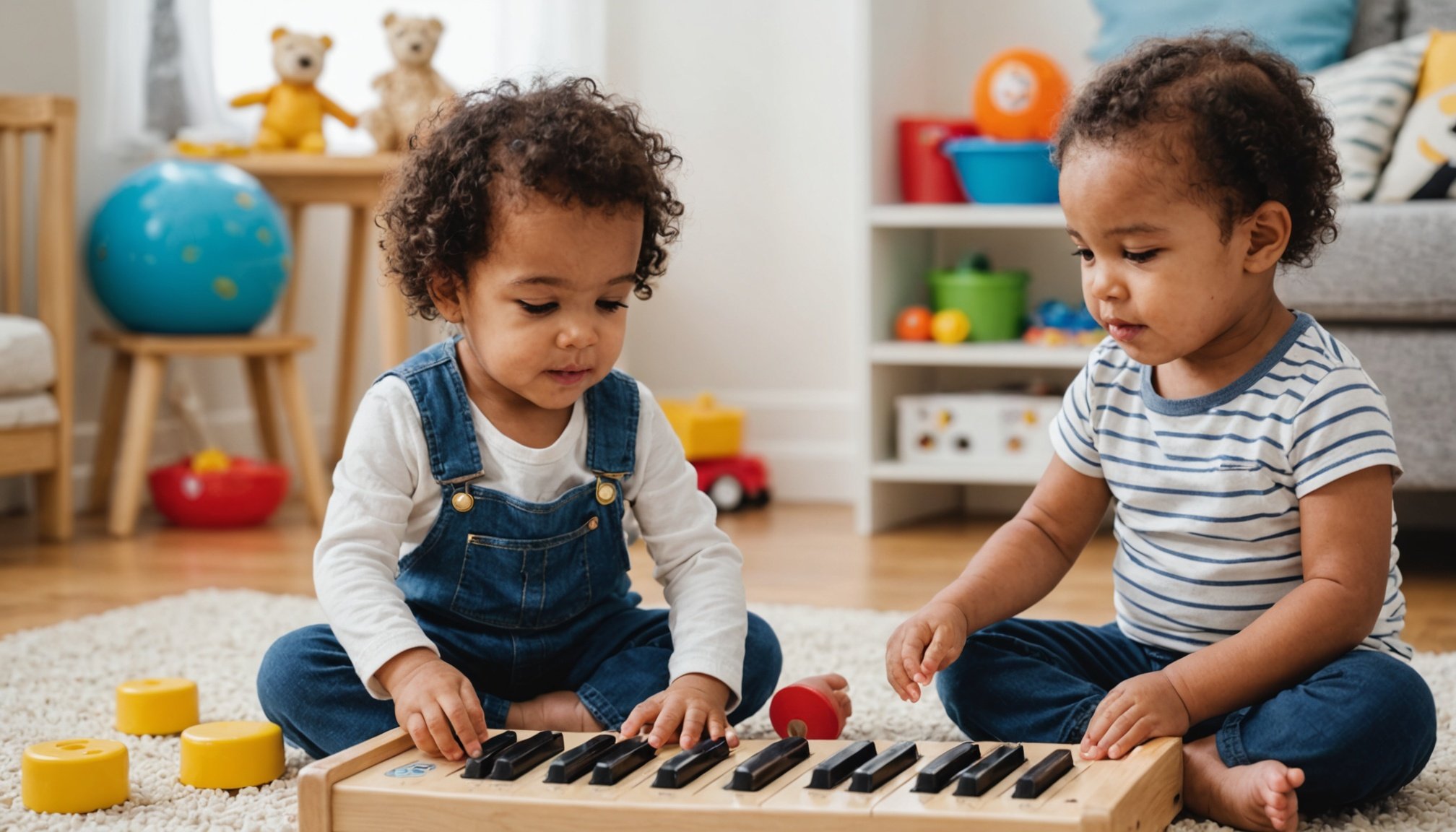The Power of Early Musical Training on Toddler Language Development
When we think about the early years of a child’s life, we often focus on traditional methods of learning, such as reading and speaking. However, there is a lesser-known but equally powerful tool that can significantly impact a toddler’s language development: music. In this article, we will delve into the world of musical training and its profound effects on the linguistic skills of young children.
How Music and Language Are Connected
Music and language are more intertwined than you might think. Both involve complex auditory stimuli that our brains process in similar ways. This concept is encapsulated in the idea of “music and language processing,” which highlights the shared neural pathways and cognitive resources used for both music and spoken language[5].
Also to read : Can Embracing Plant-Based Diets Dramatically Reduce Your Type 2 Diabetes Risk?
Shared Neural Pathways
Studies have shown that the brain regions responsible for processing music and language overlap significantly. For instance, areas like the auditory cortex and the Broca’s area, which are crucial for language comprehension and production, are also active when we listen to or create music. This overlap suggests that skills developed through musical training can transfer to language skills and vice versa[5].
Rhythm and Melody Perception
Music involves rhythm, melody, and syntax, all of which are also fundamental components of language. The ability to recognize and reproduce rhythms and melodies can enhance a child’s phonological awareness, which is the ability to hear and manipulate the sounds in words. This skill is a cornerstone of language development and is closely linked to reading abilities and overall linguistic competence[4].
In the same genre : What strategies can you implement to manage stress effectively in a high-pressure work environment?
The Impact of Musical Training on Language Development
Enhanced Phonological Awareness
Musical training has been shown to improve phonological awareness in children. By engaging with music, toddlers can better distinguish between different sounds, a skill that is essential for learning to read and speak. For example, a study found that children who received musical training performed better in phonological awareness tasks compared to those who did not receive such training[4].
Improved Speech Skills
Musical training can also directly impact speech skills. Singing and speaking share many similarities, and the practice of singing can help children develop clearer and more articulate speech. This is because singing requires precise control over pitch, tone, and rhythm, all of which are also critical for effective communication in spoken language[3].
Social and Emotional Benefits
Music is not just about individual skills; it also has a profound impact on social and emotional development. Participating in musical activities can enhance social skills and interaction among children. For instance, singing in a group or playing a musical instrument in an ensemble fosters teamwork, communication, and emotional intelligence[3].
Practical Strategies for Integrating Music into Early Learning
Establish a Daily Music Routine
Incorporating music into your child’s daily routine can be as simple as singing a lullaby or playing instrumental music during mealtime. Consistency is key, so try to set aside a specific time each day for musical activities.
Use Music to Enhance Phonemic Awareness
Here are some practical ways to use music to boost phonemic awareness:
- Sing Songs with Repetition: Songs like “The Wheels on the Bus” or “Old MacDonald Had a Farm” repeat sounds and rhythms, helping children recognize and mimic them.
- Create Musical Games: Play games where you repeat a sound or a word and ask your child to repeat it back. You can use musical instruments to make it more engaging.
- Listen to Instrumental Music: Instrumental music can help children focus on different sounds and rhythms without the distraction of lyrics.
Engage in Movement and Music
Combining movement with music can make learning more fun and interactive. For example:
- Dance to Rhythms: Dance to different types of music to help your child feel the rhythm and beat.
- Use Action Songs: Songs like “If You’re Happy and You Know It” involve actions that correspond to the lyrics, enhancing both motor skills and language development.
Evidence and Research
Empirical Studies
Several studies have provided strong evidence supporting the positive impact of musical training on language development. For instance, a randomized trial of El Sistema in Venezuela found that children who received musical training showed higher inhibition skills and better quality of speech compared to those who did not receive such training[2].
Statistical Learning
Musical training also enhances statistical learning, which is the ability to recognize patterns and predict future events based on past experiences. This skill is crucial for language learning, as it helps children understand grammar and syntax. Research indicates that infants as young as a few months old can benefit from musical exposure, which aids in their statistical learning abilities[4].
Table: Comparing Musical Training and Traditional Language Learning Methods
| Aspect | Musical Training | Traditional Language Learning |
|---|---|---|
| Phonological Awareness | Enhances ability to distinguish and manipulate sounds through rhythm and melody[4] | Focuses on explicit teaching of phonemes and phonemic awareness |
| Social Skills | Fosters teamwork, communication, and emotional intelligence through group activities[3] | Often individualized, with less emphasis on social interaction |
| Emotional Development | Supports emotional health and self-regulation through expressive music activities[1] | May not directly address emotional development |
| Engagement | Uses songs, rhythms, and movements to make learning fun and interactive | Can be more structured and less engaging for some children |
| Transferable Skills | Develops skills that transfer to other areas of learning, such as reading and math[5] | Primarily focuses on language skills |
Quotes and Anecdotes
The Power of Music in Early Learning
“Music is the answer,” says a music educator from Simply Music. “It builds up language and speech, enhances phonemic awareness, and supports emotional health and self-regulation”[1].
A Parent’s Experience
“I started singing to my child when she was just a few months old,” says Sarah, a mother of two. “Now, at the age of two, she can recognize and repeat complex rhythms and melodies. Her language skills have also improved significantly, and she loves interacting with other children during our music sessions.”
Early musical training is not just a hobby or an extracurricular activity; it is a powerful tool that can significantly enhance a toddler’s language development. By integrating music into your child’s daily routine, you can improve their phonological awareness, speech skills, and social and emotional development.
Final Tips for Parents
- Make It Fun: Use music to make learning fun and engaging. Sing songs, play instruments, and dance together.
- Be Consistent: Establish a daily routine that includes musical activities.
- Seek Professional Help: Consider enrolling your child in a music class or working with a music therapist to maximize the benefits.
In the end, the connection between music and language is clear: music is not just a form of entertainment, but a valuable educational tool that can shape the linguistic and cognitive abilities of our children from a very young age.
Practical Tips for Integrating Music into Early Childhood
Engaging children in music activities during their formative years can bolster several aspects of their development. Integrating music into early childhood programs isn’t just for fun—it’s instrumental in cognitive and social development.
Recommended Musical Activities for Toddlers
Introducing toddlers to music should be interactive and enjoyable. Simple instruments, such as tambourines and maracas, provide an excellent way for young ones to explore sound and rhythm. Singing familiar nursery rhymes helps develop language skills while fostering a love for music. Additionally, clapping games and dance sessions are excellent music activities to encourage coordination and motor skills.
Selecting Appropriate Music for Development
Choosing the right music is pivotal. Seek out tunes that are not only age-appropriate but also varied in style and tempo. Classical music is often recommended for its calming influence and ability to improve concentration. Parental involvement in selecting music can further tailor experiences to suit individual child needs, encouraging both emotional and intellectual growth.
Encouraging Parent-Child Musical Interaction
To maximise the benefits of music, parents should actively participate. Singing along and dancing with toddlers strengthen bonds and create a joyful learning environment. Parents can also use instruments to create simple songs together. This parental involvement not only supports musical development but also promotes self-expression and confidence.
Case Studies of Successful Early Musical Training Programs
Examining various case studies reveals the transformative impact of early musical training programs on children’s development. Numerous programs have been designed to foster musical skills among young learners, proving their effectiveness in enhancing toddler language skills.
In several successful musical training initiatives, children participated in structured activities like singing, rhythm exercises, and instrument exploration. Studies have shown that these activities contribute positive outcomes to language skills by enhancing phonemic awareness and vocabulary.
A noteworthy example includes a program that integrates music and movement, improving not only language but also social interaction abilities in toddlers. Educators report observing children who participated in musical activities display better pronunciation, increased word usage, and enhanced listening skills.
Educators and parents have provided glowing testimonials on the impact of these programs. One parent noted that their child’s ability to articulate words improved significantly after engaging in a music-based curriculum. An educator highlighted observing children develop a more profound sense of confidence in expressing themselves verbally.
Analysis of program outcomes underscores the holistic benefits gained from early musical training. The dual focus on cognitive and emotional development through music establishes a foundation for future academic success.










